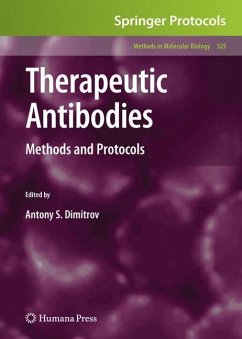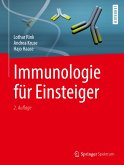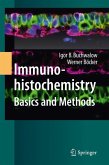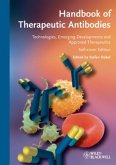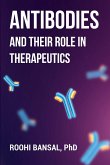With revenues from the top five therapeutic antibodies accounting for a majority of the recent pharmaceutical sales, the research and development in the field has exploded over the past several years and is expected to grow with new emerging monoclonal antibodies like Numax, Lucentis, Actemra, and others. In Therapeutic Antibodies: Methods and Protocols, leading experts from academic laboratories and biotechnology companies present an extensive set of protocols for the discovery and development of therapeutic antibodies, featuring sections devoted to recombinant antigens, antibody libraries, antibody discovery, antibody engineering, and antibody preclinical development. Written in the highly successful Methods in Molecular Biology(TM) series format, the chapters contain brief introductions to their respective subjects, lists of the necessary materials and reagents, step-by-step, readily reproducible laboratory protocols, and notes highlighting tips on troubleshooting and avoiding known pitfalls.
Comprehensive and cutting-edge, Therapeutic Antibodies: Methods and Protocols serves as a key resource for researchers and antibody engineers investigating and participating in this rapidly growing therapeutic market segment.
Over 2000 years ago in China, antibodies elicited by early forms of vaccination likely played a major role in the protection of the population from infectious agents. Vac- nation has been further developed in Europe and described by Edward Jenner in the late-eighteenth century, then successfully implemented worldwide. The idea to use theactiveingredientinthebloodofvaccinated(orimmunized)animalsorhumansfor the treatment of diseases came a century later. It was made possible by a series of discoveries,suchastherealizationthattheserumfromanimalsimmunizedwithtoxins, for example, diphtheria toxin or viruses, is an effective therapeutic against the disease causedbythesameagentinhumans. Inthe1880s,vonBehringdevelopedanantitoxin (anti-body) that did not kill the bacteria but neutralized the bacterial toxin. The first Nobel Prize in Medicine (1901) was given to him for the discovery of the serum therapy. Acenturylater,22monoclonalantibodies(mAbs)areapprovedbytheUnited States Food and DrugAdministration (FDA) for clinical use, and hundreds are in clinicaltrialsforthetreatmentofvariousdiseasesincludingcancers,immunedisorders, and infections. The revenues from the top-five therapeutic antibodies reached $11. 7 billion in 2006, and major pharmaceutical companies raced to acquire antibody biotech companies with a recent example of MedImmune, Inc. , which was acquired for $15. 6 billion by AstraZeneca in 2007. This explosion of research and development in the field of therapeutic antibodies prompted the publication of the MiMB volume Therapeutic Antibodies: Methods and Protocols. The book's major goal is to present a set of protocols useful for researchers discoveringanddevelopingtherapeuticantibodies. Currentadvancesandfuturetrends in the antibody therapeutics are analyzed in thelead-in review article.
Hinweis: Dieser Artikel kann nur an eine deutsche Lieferadresse ausgeliefert werden.
Comprehensive and cutting-edge, Therapeutic Antibodies: Methods and Protocols serves as a key resource for researchers and antibody engineers investigating and participating in this rapidly growing therapeutic market segment.
Over 2000 years ago in China, antibodies elicited by early forms of vaccination likely played a major role in the protection of the population from infectious agents. Vac- nation has been further developed in Europe and described by Edward Jenner in the late-eighteenth century, then successfully implemented worldwide. The idea to use theactiveingredientinthebloodofvaccinated(orimmunized)animalsorhumansfor the treatment of diseases came a century later. It was made possible by a series of discoveries,suchastherealizationthattheserumfromanimalsimmunizedwithtoxins, for example, diphtheria toxin or viruses, is an effective therapeutic against the disease causedbythesameagentinhumans. Inthe1880s,vonBehringdevelopedanantitoxin (anti-body) that did not kill the bacteria but neutralized the bacterial toxin. The first Nobel Prize in Medicine (1901) was given to him for the discovery of the serum therapy. Acenturylater,22monoclonalantibodies(mAbs)areapprovedbytheUnited States Food and DrugAdministration (FDA) for clinical use, and hundreds are in clinicaltrialsforthetreatmentofvariousdiseasesincludingcancers,immunedisorders, and infections. The revenues from the top-five therapeutic antibodies reached $11. 7 billion in 2006, and major pharmaceutical companies raced to acquire antibody biotech companies with a recent example of MedImmune, Inc. , which was acquired for $15. 6 billion by AstraZeneca in 2007. This explosion of research and development in the field of therapeutic antibodies prompted the publication of the MiMB volume Therapeutic Antibodies: Methods and Protocols. The book's major goal is to present a set of protocols useful for researchers discoveringanddevelopingtherapeuticantibodies. Currentadvancesandfuturetrends in the antibody therapeutics are analyzed in thelead-in review article.
Hinweis: Dieser Artikel kann nur an eine deutsche Lieferadresse ausgeliefert werden.
From the reviews:
"This is an informative and practical handbook for those involved in the discovery and development of therapeutic antibodies. ... Intended for those in the pharmaceutical industry or academia ... and in the offices of those who direct projects which include this type of work. ... This is a valuable addition to the libraries of those who perform day-to-day work in this field, or who manage projects involving therapeutic antibodies. ... this is a valuable guide." (Frederick D. Coffman, Doody's Review Service, June, 2009)
"This is an informative and practical handbook for those involved in the discovery and development of therapeutic antibodies. ... Intended for those in the pharmaceutical industry or academia ... and in the offices of those who direct projects which include this type of work. ... This is a valuable addition to the libraries of those who perform day-to-day work in this field, or who manage projects involving therapeutic antibodies. ... this is a valuable guide." (Frederick D. Coffman, Doody's Review Service, June, 2009)

